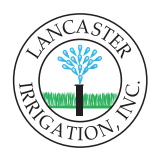Your premier destination for all your irrigation needs
Frequently Asked Questions
-
Will a riding mower cause any damage to an irrigation system?
No, each sprinkler has a heavy duty retraction spring to pull it down below ground Level when not in use. Also, the sprinkler is attached to the lateral line with a flexible connection so it can absorb movement without breaking.
-
What type of pipe do you use in an installation?
We mainly use PVC (white pipe) because of its durability and superior flow characteristics.
-
If it rains, do I need to do anything with the irrigation controller?
No, we install a rain sensor which automatically shuts the system down.
-
Are irrigation controllers hard to program?
No, they are much easier than a VCR!
-
I would like to irrigate my entire property but it is not in the budget. Can you do part of the system now and the remainder at a future date?
Yes, we can easily do that.
-
Can I irrigate just some of my landscape beds or lawn?
Yes, we can split it up in any way that makes sense for the individual situation.
-
Will we need to call a landscaper to repair any lawn disturbed during installation?
No, we will reseed any area that needs it. Generally after a couple weeks of consistent irrigation, all signs of an installation disappear.
-
I have a water softener in my house. Will the irrigation system affect it?
No, we tap into the water source before the softener so as to not affect its operations.
-
What options do I have for watering my landscape bed areas and what are the pros and cons of each?
Spray Heads:
pros: very little maintenance, easy to verify operations, great for planting beds that change often
cons: can be more expensive to install, more intrusive to existing bed areas, spray pattern can be blocked by over grown plants, can make spots on windows, not very efficient
Drip Tubing:
pros: highly efficient, no overspray on windows, very flexible for odd shaped areas, less intrusive to established beds, generally less expensive.
cons: can be damaged with careless digging (easily fixed but still an issue), more subtle to verify operations.
-
How much water will my system use?
It depends on various factors but to give you an idea, it takes approximately 27,000 gallons to put an inch of water on one acre of grass.
-
Is there any on going maintenance with an irrigation system?
Yes, in the Spring we pressure check the entire system, check operations of sprinkler and drip zones and reprogram the controller if necessary. In the Fall, we come with a large air compressor to blow-out all the water from the system to prevent the possibility of any freeze damage.
-
What is the typical response from a customer after an irrigation system is installed?
Why didn't we do this years ago?
Request A Service Today!
Ready to elevate your landscape with a top-of-the-line irrigation system?
Contact us today to learn more about our services and schedule a consultation with one of our experts. Experience the Lancaster Irrigation difference for yourself!
Our Services
All Rights Reserved | Lancaster Irrigation LLC
